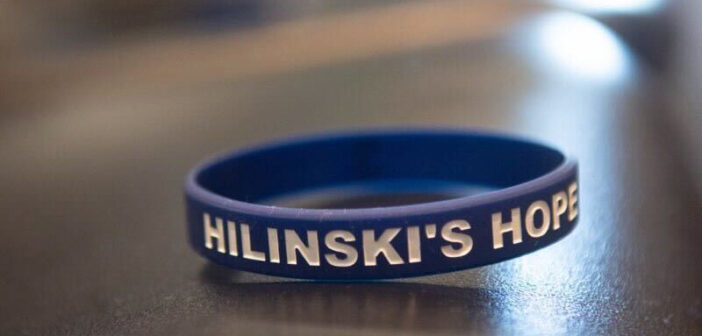Note from the editors: The following story contains issues related to mental health and suicide.
The National Suicide Prevention Lifeline is 800-273-8255.
Correction: A previous version of this article incorrectly paraphrased information from the Hilinski’s Hope Foundation website. The article stated that one of the goals for College Football Mental Health Week was to “reduce” the stigma surrounding students addressing mental health concerns. The website states the foundation’s mission is to “eliminate” that stigma. The article has been updated to reflect this correction.
The Lehigh football team was one of over 120 college football teams to take part in this year’s College Football Mental Health Week.
According to the Hilinski’s Hope Foundation website, the goals of the event, which took place in the first week of October, were to provide greater access to quality resources for mental health care, as well as eliminate the stigma surrounding students addressing their mental health concerns.
College Football Mental Health Week, now in its third year, is organized by Mark and Kym Hilinski. They began the foundation after losing their son Tyler to suicide in 2018 while he was a quarterback at Washington State University.
The Hilinskis said the goal is to use their foundation to prevent a similar tragedy from happening.
“There are so many people that are struggling with mental health on a daily basis,” Kym Hilinski said. “So if we could just change their lives, let them know that it’s ok to not be ok even though they’re strong athletes and reach out and ask for help.”

Football players put Hilinski Hope Foundation stickers on their helmets to help raise awareness for mental health of athletes and reduce the stigma surrounding it. Lehigh football was one of over 120 college football teams to take part in this year’s College Football Mental Health Week. (Photo courtesy of Hilinski’s Hope)
This year’s College Football Mental Health Week raised over $115,000 from participating schools.
The Hilinskis regularly travel the country speaking to audiences at colleges regarding student athlete mental health. They stopped at Lehigh last April for one of their “Tyler Talks.”
At Lehigh, athletes and other students can address their mental health concerns through the University Counseling and Psychological Services located in Johnson Hall.
At Counseling and Psychological services, psychologists in training come from across the country to be a part of Lehigh’s Sports Psychology track, which according to Counseling and Psychological Services director Dr. Aaron Sterba, not many other universities offer. Trainees get the chance to work with athletes, coaches, trainers and athletics staff on a variety of issues relating to mental health, performance and overall wellness.
Sterba said the trainees in the Sports Psychology track work 40 hours a week under his direct supervision and a team of Counseling and Psychological Services’ licensed psychologists.
“We are working individually, working at the team level, doing some peak performance work with athletes, as well as doing just general counseling and mental health work with our student athletes,” Sterba said.
He said it is important for athletes to prioritize their mental health whenever they are getting ready to perform on the field.
On top of what is provided by Counseling and Psychological Services, student athletes themselves have also organized events to promote mental health awareness and break barriers between athletic performance and addressing mental health concerns.
The Student Athlete Council, which is led by upperclassmen from various sports teams, organizes a wide range of events including ones that address student athlete mental health.
Lehigh field hockey senior and Student Athlete Council co-captain Sophie Leighton said the council also plans on bringing in guest speakers in the future to talk to students about different aspects of mental health.
She said the council recently hosted a mental health talk where student athletes were split into groups and discussed different questions regarding mental health.
The Student Athlete Council compliments the events they hold with initiatives that focus around increasing student athlete attendance at all sports games. Leighton said she hopes this fosters a sense of comfort where student athletes at Lehigh are constantly encouraged to support each other.
“We just really want to focus on creating safe spaces for student athletes to talk about (mental health) and for them to acknowledge the importance of it,” Leighton said. “Hopefully, once we start doing that and then keep building on that through months and years, Lehigh will be a place where (mental health) can be regularly talked about.”






Comment policy
Comments posted to The Brown and White website are reviewed by a moderator before being approved. Incendiary speech or harassing language, including comments targeted at individuals, may be deemed unacceptable and not published. Spam and other soliciting will also be declined.
The Brown and White also reserves the right to not publish entirely anonymous comments.
1 Comment
That you wish to “reduce” the stigma of mental health issues interests me. “Reduce’ means “keep some”. I am certain that is not your actual goal.
Harold A Maio